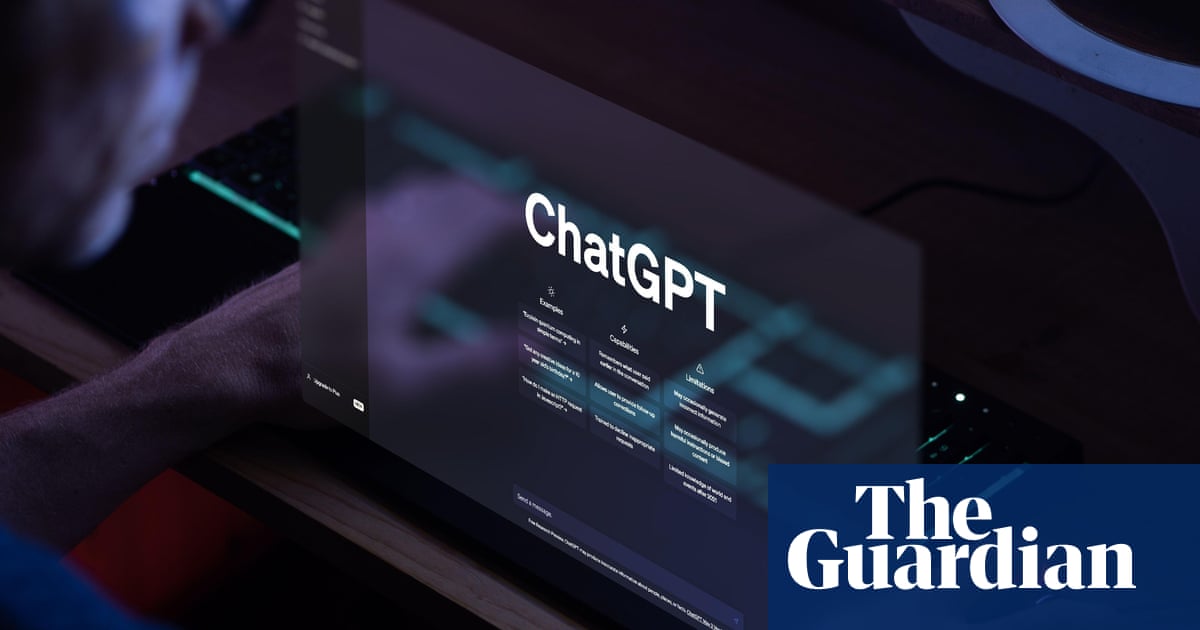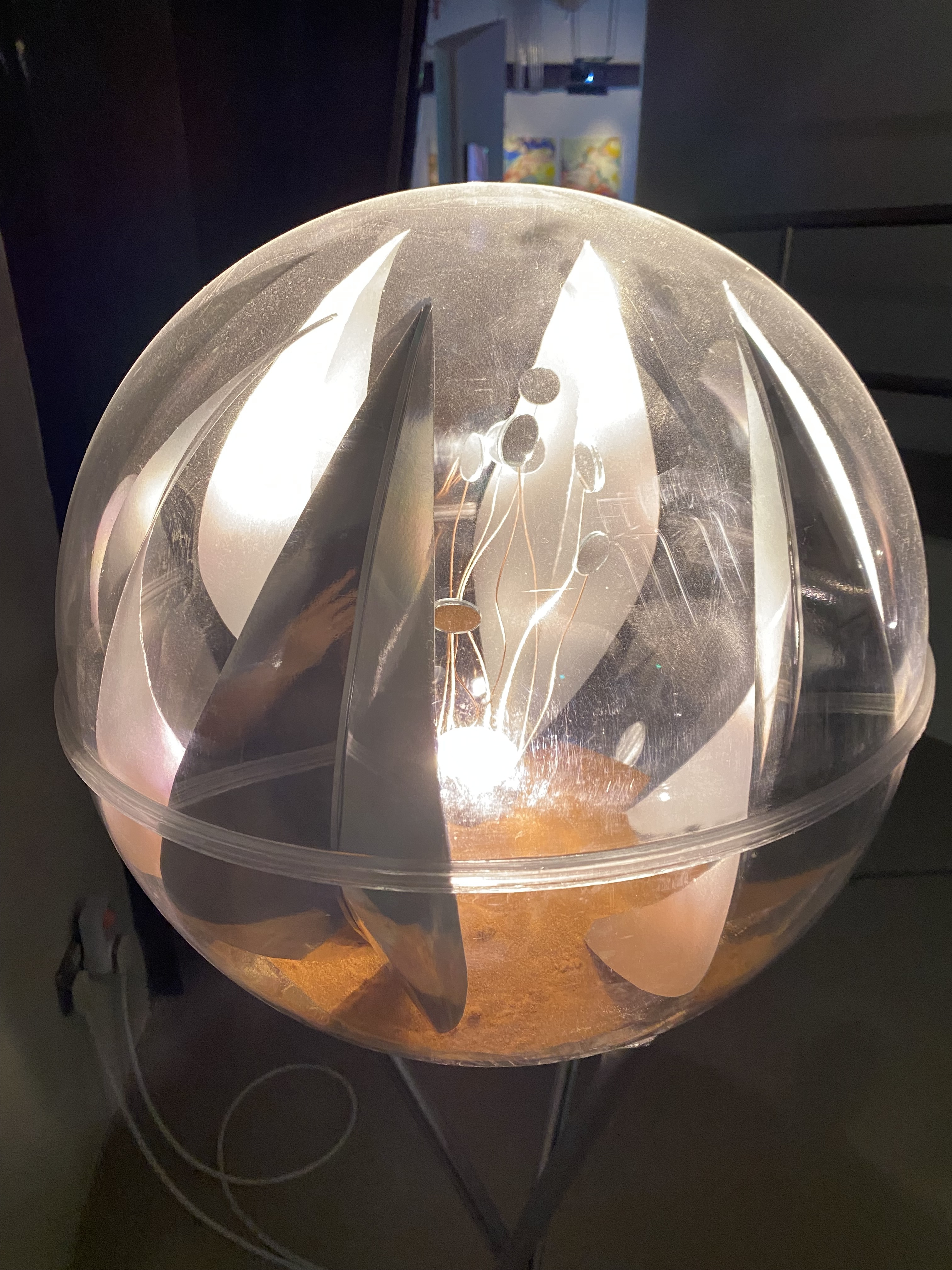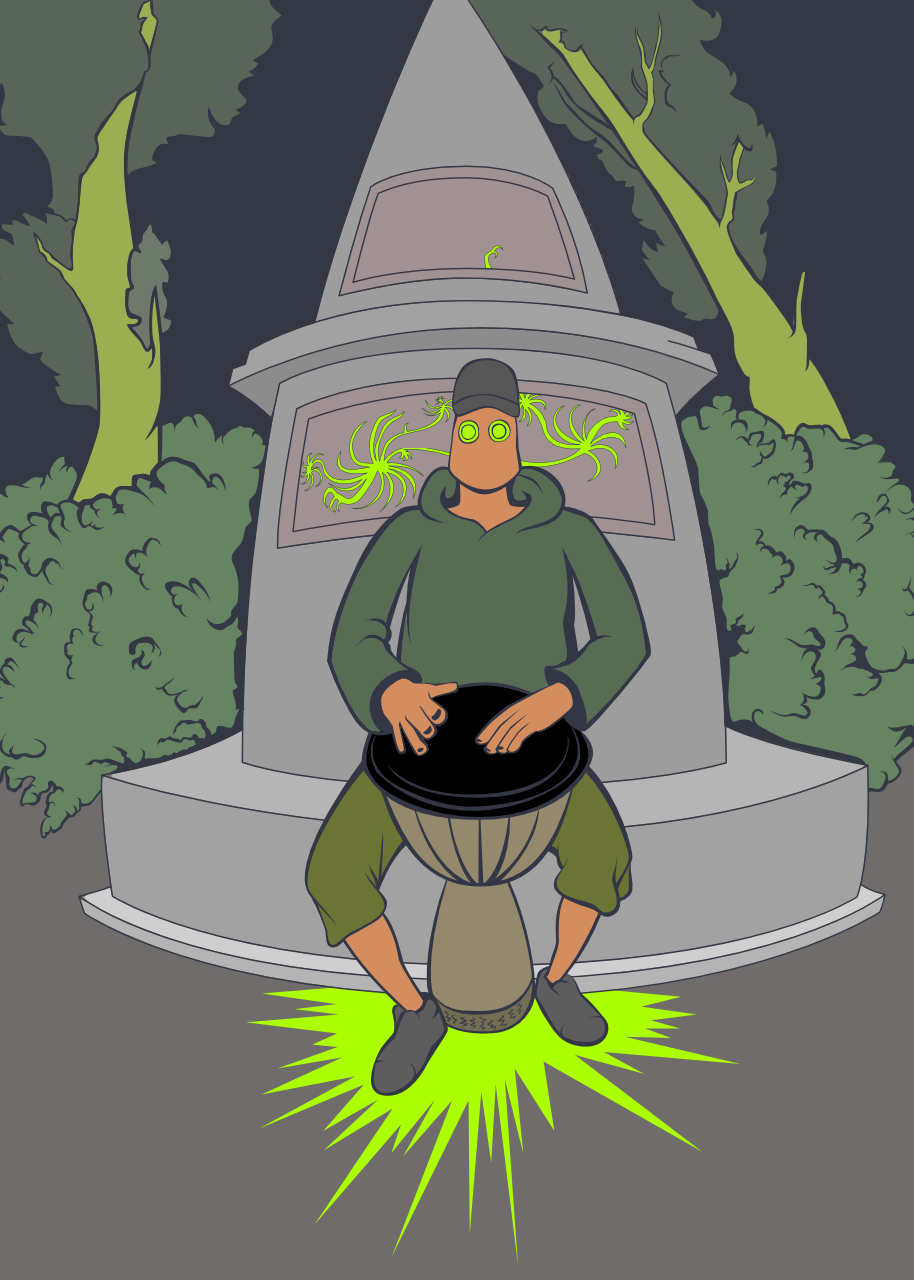Guardian investigation finds almost 7,000 proven cases of cheating – and experts says these are tip of the iceberg
Thousands of university students in the UK have been caught misusing ChatGPT and other artificial intelligence tools in recent years, while traditional forms of plagiarism show a marked decline, a Guardian investigation can reveal.
A survey of academic integrity violations found almost 7,000 proven cases of cheating using AI tools in 2023-24, equivalent to 5.1 for every 1,000 students. That was up from 1.6 cases per 1,000 in 2022-23.
Figures up to May suggest that number will increase again this year to about 7.5 proven cases per 1,000 students – but recorded cases represent only the tip of the iceberg, according to experts.
The data highlights a rapidly evolving challenge for universities: trying to adapt assessment methods to the advent of technologies such as ChatGPT and other AI-powered writing tools.
Maybe we need a new way to approach school. I don’t think I agree with turning education into a competition where the difficulty is curved towards the most competitive creating a system that became so difficult that students need to edge each other out any way they can.
I guess what I don’t understand is what changed? Is everything homework now? When I was in school, even college, a significant percentage of learning was in class work, pop quizzes, and weekly closed book tests. How are these kids using LLMs so much for class if a large portion of the work is still in the classroom? Or is that just not the case anymore? It’s not like ChatGPT can handwrite an essay in pencil or give an in person presentation (yet).
University was always guided self-learning, at least in the UK. The lecturers are not teachers. The provide and explain material, but they’re not there to hand-hold you through it.
University education is very different to what goes on at younger ages. It has to be when a class is 300 rather than 30 people.
WTF? 300? There were barely 350 people in my graduating class of high school and that isn’t a small class for where I am from. The largest class size at my college was maybe 60. No wonder people use LLMs. Like, that’s just called an auditorium at that point, how could you even ask a question? Self-guided isn’t supposed to mean “solo”.
You can ask questions in auditorium classes.
The 300+ student courses typically were high volume courses like intro or freshman courses.
Second year cuts down significantly in class size, but also depends on the subject.
3rd and 4th year courses, in my experience, were 30-50 students
You can ask questions in auditorium classes.
I am going to be honest; I don’t believe you. I genuinely don’t believe that in a class with more people than minutes in the session that a person could legitimately have time to interact with the professor.
The 60 person class I referred to was a required lecture portion freshman science class with a smaller lab portion. That we could ask questions in the lab was the only reason 60 people was okay in the lecture and even then the professor said he felt it was too many people.
That’s fine if you don’t, but you can ask questions.
They even have these clickers that allow the professor to ask “snap questions” with multiple choice answers so they can check understanding
I can’t believe people go into debt for that experience. I would be livid.
Your disbelief is strange.
People occasionally ask questions in lectures. Anything they are confused about gets covered off in tutorials later. Lecturers and tutors both have office hours where further questions are asked.
If a student has learning difficulties or special requirements there is pastoral care available for that.
It’s really not mysterious.
There’d be smaller tutorial sessions. I’d have a once a week 5 on 1 session with my tutor for an hour. Lab sessions might be 30-40 people. Specialist courses would be 100 people.
…but yes, lectures were 300+ people for the core subjects. Generally you and your peers would work together on making sense of it all. You’d find that some people understood some subjects better than others and you’d help each other out.
Depends on the course. Some are very assignment heavy and some have 2 in person test grades for the entire grade. As a rule, there’s more of the former than the latter.
I do agree we should go back to the 90s/00s way of just having weekly quizzes and tests in person though.
But like what if we just had schools present the work. Then the work force was reasonable for testing if a candidate’s knowledge was acceptable. This way the onus is on the student. If they don’t learn, that’s on them. Professors are there to give work and grade in the sense that they challenge students to be critical of their own work. Did they cite, are the arguments logical or poor. Did they meet or exceed expectations. If they cheated… I think I see the problem. Hmmm not sure I just think maybe school should be less a mill and more about the responsibility of the student and that the workforce is responsible for determining if someone has the skills. We’ve just really relied on education system for something it isn’t. It’s really a glorified daycare that business offloaded some responsibility on to
In the US we went common core. That means the school board decides the courses at the beginning of the year, and they set tests designed to ensure the students are learning. But there are two issues. 1. The students are not being taught. Teachers dont get paid enough to care nor provide learning materials, so they just have yhe students read the textbook and do homework until the test. This means students are not learning critical thinking or the material, they merely memorize this weeks material long enough to pass the test. 2. The tests are poorly designed. As I hinted at with point 1, the tests merely ensure that you have memorized this weeks material. They do not and are not designed to ensure that you actually learn.
These issues are by design, not by accident. Teachers pay rates have stagnated along with the rest of the working class, with the idea being to slowly give the working class less and less propetional buying power and therefore economic control. In addition, edicating your populace runs directly contradictory to what the current reigning faction wants. An educated populace is harder to lie to.
My dad had oral exams, we can go back to that
On his knees?
That was an other occasion, mom gave him a passing grade.
Nah.
Let the workers tear each other apart in an effort to serve.
I like seeing them suffer at this point because they all brought this on themselves.
You say they, not including yourself.
You’re a member of the rich ruling class, then?
It’s an interesting perspective that working class teenagers brought this on themselves.
They generally seem quite restricted in their agency and impact, indeed they are usually the most vocal and proactive age group for bringing about positive change, but the incumbent oppressive system of late stage capitalism (not any one individual, group or organisation, but the collected interests and power of the ruling class put through the lens of capitalism) resists that change with great strength.
And thats just the ones that were stupid enough to get caught realistically I think this is more like 5% instead of 0.5%
Actually caught, or caught with a “ai detection” software?
“Read this document. Was it made with Ai?”
“Yes, it sure was! Great catch!”
“You’re wrong, I just wrote it myself 15 minutes ago.”
“Teeheehee oopsie! Silly me! I’ll try to do better next time then! Is there anything else I can help with?”
Actually caught. That’s why it’s tip of the iceberg, all the cases that were not caught.
The article does not state that. It does, however, mention that AI detection tools were used, and that they failed to detect AI writing 90 something % of the time. It seems extremely likely they used ai detection software.
I’m saying this a someone that has worked for multiple institutions, raised hundreds of conduct cases and has more on the horizon.
The article says proven cases. Which means that the academic conduct case was not just raised but upheld. AI detection may have been used (there is a distinct lack of concencus between institutions on that) but would not be the only piece of evidence. Much like the use of Turnitin for plagiarism detection, it is an indication for further investigation but a case would not be raised based solely on a high tii score.
There are variations in process between institutions and they are changing their processes year on year in direct response to AI cheating. But being upheld would mean that there was direct evidence (prompt left in text), they admitted it in (I didn’t know I wasn’t allowed to, yes but I only, etc) and/or there was a viva and based on discussion with the student it was clear that they did not know the material.
It is worth mentioning that in a viva it is normally abundantly clear if a given student did/didn’t write the material. When it is not clear, then (based on the institutions I have experience with) universities are very cautious and will give the students the benefit of the doubt (hence tip of iceberg).
Surprise motherfuckers. Maybe don’t give grant money to LLM snakeoil fuckers, and maybe don’t allow mass for-profit copyright violations.
So is it snake oil, or dangerously effective (to the point it enables evil)?
it is snake oil in the sense that it is being sold as “AI”, which it isn’t. It is dangerous because LLMs can be used for targeted manipulation of millions if not billions of people.
Yeah, I do worry about that. We haven’t seen much in the way of propaganda bots or even LLM scams, but the potential is there.
Hopefully, people will learn to be skeptical they way they did with photoshopped photos, and not the way they didn’t with where their data is going.
Evidence says people aren’t skeptical for the most part and LLMs are good enough to fool all of us some of the time and some of us all of the time :(
ban photoshop too
“Get back in that bottle you stupid genie!”
It’s not cheating, it’s vibe studying
In some regard I don’t think it should be considered cheating. Don’t beat me up yet, I’m old and think AI sucks at most things.
AI typically outputs crap. So why does this use of a new and widely available tech get called out differently?
Using Google (in the don’t be evil timeframe) wasn’t cheating when open book was permitted. Using the text book was cheating on a closed book test. In some cases using a calculator was cheating.
Is it cheating if you write a paper completely on your own and use spell check and grammar check within word? What if a grammarly type extension is used? It’s a slippery slope that advances with technology.
I remember testing and assignments that were designed to make it harder to cheat, show your work, for math type approaches. Quizzes and short essays that make demonstration of the subject matter necessary.
Why doesn’t the education environment adapt to this? For writing assignments, maybe they need to be submitted with revision history so the teacher can see it wasn’t all done in one go via an LLM.
The quick answer responses are somewhat like using Wikipedia for a school paper. Don’t site Wikipedia and don’t use the generated text for anything but a base understanding of the topic. Now go use all the sources these provided, to actually do the assignment.
Chatgpt output isn’t crap anymore. I teach introductory physics at a university and require fully written out homework, showing math steps, to problems that I’ve written. I wrote my own homework many years ago when chegg blew up and all major textbook problems were on chegg.
Just two years ago, chatgpt wasn’t so great at intro physics and math. It’s pretty good now, and shows all the necessary steps to get the correct answer.
I do not grade my homework on correctness. Students only need to show me effort that they honestly attempted each problem for full credit. But it’s way quicker for students to simply upload my homework pdf to chatgpt and copy down the output than give it their own attempt.
Of course, doing this results in poor exam performance. Anecdotally, my exams from my recent fall semester were the lowest they’ve ever been. I put two problems on my final that directly came from from my homework, one of them being the problem that made me realize roughly 75% of my class was chatgpt’ing all the homework as chatgpt isn’t super great at reading angles from figures, and it’s like these students had never even seen a problem like it before.
I’m not completely against the use of AI for my homework. It could be like a tutor that students ask questions to when stuck. But unfortunately that takes more effort than simply typing “solve problems 1 through 5, showing all steps, from this document” into chatgpt.
Personally, I think we have homework the wrong way around. Instead of teaching the subject in class and then assign practice for home, we should be learn the subject at home and so the practice in class.
I always found it easier to read up on something, get an idea of a concept by my self. But when trying to solve the problems I ran into questions, but no one was there I could ask. If the problem were to be solved in class I could ask fellow students or the teacher.
Plus if the kids want to learn the concept from ChatGPT or Wikipedia that’s fine by me as long as they learn it somehow.
Of course this does not apply to all concepts, subjects and such but as a general rule I think it works.
Instead of teaching the subject in class and then assign practice for home, we should be learn the subject at home and so the practice in class.
Then you get students who get mad because they’re “teaching themselves”. Not realizing at all that the teacher curated what they’re reading/doing and is an SME that’s available to them when they’re completely lost.
This is mostly the purpose of my homework. I assign daily homework. I don’t expect students to get the correct answers but instead attempt them and then come to class with questions. My lectures are typically short so that i can dedicate class time to solving problems and homework assignments.
I always open my class with “does anyone have any questions on the homework?”. Prior chatgpt, students would ask me to go through all the homework, since much of my homework is difficult. Last semester though, with so many students using chatgpt, they rarely asked me about the homework… I would often follow up with “Really? No questions at all?”
once the tests, final exams come around you will pretty much guessed who used AI, and are likely to fail out the major.
This is very insightful and provides good perspective.
If I boil it down to take away is that GPT is enough to get through the fundamentals of student material, students can fake competence of the subject up to the cliff they fall off at the test.
This ultimately isn’t preparing them for the world. It’s nearly impossible to catch until it’s too late. The pass or fail options aren’t helping because neither really represents the students best interests.The call to ban it for school is the only lever we can grasp for is because every other KNOWN option has been tried or assessed.
Yeah, that fake competence is a big thing. Physics Education Research has become a big field and while i don’t follow it too closely, that seems to be a reoccuring theme - students think they are learning the material with such reliance on AI.
I intend to read a bit more of this over the summer and try to dedicate a bit of the first day or two next semester addressing how this usage of chatgpt hurts their education. I teach a lot of engineering students, which already has around a 80% attrition rate, i.e. 200 freshman, but only 40 of these graduate with an engineering degree. Probably won’t change behavior at all, but I gotta try something.
Horrifying. Is there any obvious solution being discussed in your circles?
Not them but also an instructor - where I teach, we’re having to pivot sharply towards grades being based mostly on performance in labs and in person quiz/test results. Its really unfortunate since there are many students with test anxiety and labs are really exhausting to turn into evaluation instead of instruction, but it’s the only workable solution we’ve been able to figure out.
Yep same here. I liked having homework a significant portion of grade. But with the prevalence of chatgpt, am reducing that portion of the grade and increasing the in-class exam weight.
It’s absolutely cheating - it’s plagiarism. It’s no different in that regard than copying a paper found online, or having someone else write the paper for you. It’s also a major self-own - these students have likely one opportunity to better themselves through higher education, and are trashing that opportunity with this shit.
I do agree that institutions need to adapt. Edit history is an interesting idea, though probably easy to work around. Imo, direct teacher-student interfacing would be the most foolproof, but also incredibly taxing on time and effort for teachers. It would necessitate pretty substantial changes to current practices.
I agree. This is a paradigm shift, it won’t get erased out of use.
Repeat after me: it’s NOT FUCKING A FUCKING I when it is LLMs or other machine learning snakeoil.
I’m shocked. Shocked! Well, not that shocked.
Ultimately it seems pretty dumb. If you’re not going to actually learn while you’re there, why bother? University isn’t mandatory.
That was actually my biggest disappointment with my degree - the course didn’t teach anywhere near enough for my tastes. However I would hope that I was an outlier in that respect!
Most people aren’t paying for the education. They are paying for the degree. The education they could get for £1.50 in late fees at the library. This is not something new.
University is about a lot more than the piece of paper you get at the end. If it’s of any real quality, and you are actually engaged with it, you’ll be learning from experts in your chosen field, amongst engaged and eager peers, whilst also being exposed to different viewpoints on everything from what to have for lunch through the latest innovations in your field, and adjacent ones, to the geopolitical state of the world. The people you meet, and the connections you form can, and often do, form the bedrock of your working life from then on.
All of that does make the assumption that you actively engage with university life and those around you. Make friends in different subjects, seek out your professors during office hours and talk to them about their interests, join clubs, do stupid, but ultimately harmless things.
It also assumes you are attending a ‘good’ university, rather than a profit driven degree mill, and those might be harder to find in some places than others.
I too love Good Will Hunting
Seems like an awful lot of debt to go into for something that’s really not that valuable. If the certificate is the goal then a masters or PhD will end up being what’s needed and faking your way through undergrad won’t do much good.
This is a story ask about the UK, not the US, though I imagine the situation is similar.
I don’t understand what point you’re trying to make. I know it’s about the UK…?
Who’s going into debt to be at university in the UK?
The English. £9,000 a year isn’t easy when you’re 18, throw on top rent, food, transport, socialising, many people go into debt.
Student loans have more generous terms than ordinary loans, and you only pay them back when earning more than ~£25k (depends on the loan) but that’s still debt.
Uni isn’t free in much of the UK, so… lots of people?
Here you go: “Students in England now graduate with average debt of £53,000, data shows” https://piefed.social/post/961417 https://www.theguardian.com/education/2025/jun/20/students-in-england-graduate-average-debt-increase
Yes they are? Shame on you for doubting the ernestness of students.
A certain percentage are just there to pick up a degree to increase their future income. It’s not hard to imagine they’d take any available shortcuts.
The certificate is valuable i suppose, lot of job required that cert to even get a glance with the application. After that, they just gonna try their luck with bullshitting and sucking up to their higher up.
Or maybe they just like the university life and doesn’t want to look like they’re slacking for another few years.
Either way, yikes.
employers often dont check, they look for certificate, x years of experience,etc.
only certain jobs require more scrutiny though.
That was actually my biggest disappointment with my degree - the course didn’t teach anywhere near enough for my tastes. However I would hope that I was an outlier in that respect!
From my own experiences, and those of my own social circles, you’re in the majority and its not even close. I think a lot of schools are both bad at teaching, and failing to account for the changes in the world since the internet. A lot of schools seem to want to stick to the bare minimum without changing methods or content, which unfortunately makes sense (financially), given capitalism and our current culture around schooling.
god i love ppl outsourcing their learning to Microsoft
we’re doomed
We are indeed. Not looking forward to my old age, where doctors, accountants, and engineers cheated their way into being qualified by using a glorified autocorrect.
doctors and engineer is probably much harder to cheat, because you would need to apply the knowlege hands on basis, and you would be found out and washe dout eventually. i can see fields that require alot of writing, oriignally people were hired to write thier prompts or essay pre-lawyer, or whatever but they always get caught down the line.
We live in a world where this building was signed off on and built, and that was before AI, so multiple incompetent people are getting through engineering.
As for incompetent doctors there is now an agency tasked with catching them.
No shit. I’m in postsecondary as an instructor and it is so beyond frustrating . They all use it, they don’t want to read or learn.
None of our institutions encourage “learning”; they are built to encourage “making the grade”. Why they need the grade and what it represents is irrelevant to students. It’s just a barrier that society has placed in front of them.
There needs to be something done about how we, as a society, approach education because whatever we are doing ain’t working. It apparently only worked at a very surface level and that was only because A.I. wasn’t available yet to be an easy out.
Three magic words - “Open Note Exam”
Students prep their own notes (usually limited to “X pages”), take them into the exam, gets to use them for answering questions.
Tests application and understanding over recall. If students AI their notes, they will be useless.
Been running my exams as open note for 3 years now - so far so good. Students are happy, I don’t have to worry about cheating, and the university remains permanently angry because they want everything to be coursework so everyone gets an AI A ^_^
it is a paradigm shift.
what they learn from this is to make sure to not get caught in the future.
Oh man the BBC is surely already preparing for Adolescence: rise of the robots
deleted by creator
Why fight against it? Because some of these students will be going into jobs that are life-or-death levels of importance and won’t know how to do what they’re hired to do.
There’s nothing wrong with using a large language model to check your essay for errors and clumsy phrasing. There’s a lot wrong with trying to make it do your homework for you. If you graduate with a degree indicating you know your field, and you don’t actually know your field, you and everyone you work with are going to have a bad time.
It’s almost like we shouldn’t value the importance of just passing the exam/ writing the paper and revamp our entire approach to teaching
A theoretically correct but practically useless sentiment.
Yup. Although “avoid relying on writing and especially subjective long-form writing” is much more practicable.
Ditto. A license just means you can pass a test. It doesn’t say anything more than that. That’s why you’re always advised to get 2nd opinions.
This is what I have been hoping LLMs would provoke since the beginning.
Testing understanding via asking students to parrot textbooks with changed wording was always a shitty method, and one that de-incentivizes deep learning:
It allows for teachers that do not understand their field beyond a superficial level to teach, and to evaluate. What happens when a student given the test question “Give an intuitive description of an orbit in your own words” answers by describing orbital mechanics in a relative frame instead of a global frame, when the textbook only mentions global frame? They demonstrate understanding beyond the material which is excellent but all they do is risk being marked down by a teacher who can’t see the connection.
A student who only memorized the words and has the ability to rearrange them a bit, gets full marks no risk.
Maybe we can get back to workplaces training their employees for the job they want them to do rather than putting the entire cost of training on 18 year oldish high school graduates for a job market that might not even be great (or exist) once they graduate post-secondary.
Realistically, any job that you hire someone with a degree for will require training - the question is how much they’ll understand and at what level the training needs to start.
If ChatGPT can consistently do the needed activities without raising eyebrows, it’s kind of a redundant job anyway. If they’re posing problems that have little to do with the job, it’s a shit course.
That’s an odd thing to say. For one thing, there are plenty of physical activities that one could get a reasonable description of from ChatGPT, but if you can’t actually do them or understand the steps, you’re gonna have a bad time.
Example: I’ve never seen any evidence that ChatGPT can properly clean and sterilize beakers in an autoclave for a chemical engineering laboratory, even if it can describe the process. If you turned in homework cribbed from ChatGPT and don’t actually know how to do it, your future lab partners aren’t going to be happy that you passed your course by letting ChatGPT do all the work on paper.
There’s also the issue that ChatGPT is frequently wrong. The whole point here is that these cheaters are getting caught because their papers have all the hallmarks of having been written by a large language model, and don’t show any comprehension of the study material by the student.
And finally, if you’re cheating to get a degree in a field you don’t actually want to know anything about… Why?
Well then make the students clean and sterilise beakers. It only kills assignments in written form with limited supervision, the way I assume calculators and traditional algorithms changed a bunch of things before my time. Lots of professors and educators in general are making exactly that kind of change.
That means more lab time, it’s true, but it’s not the first time universities have had to expand their facilities. And at the other end think of all the savings on teaching writing.
And finally, if you’re cheating to get a degree in a field you don’t actually want to know anything about… Why?
It’s kind of unrelated, but money and prestige, probably. Caring about knowing for it’s own sake is depressingly rare.
Everyone should care about the efficacy of the education system. It’s the foundation of a useful society, and essential for its betterment. This method of cheating and its rate of adoption is a major blow to a whole generation of students that will learn to have others think for them instead of leaning to think for themselves.
So when you say “Everyone should care about the efficacy of the education system,” we are including the cheating students under “everyone,” yes?
Yes? Why wouldn’t I?
Because I want to live in a society in which my pharmacist gives me the right fucking meds. Are you insane???
I think universities care because they depend heavily on reputation. Companies will higher more graduate from a higher standard university.
I think if no solution comes quickly or univirsties doesn’t adapt, this will render the whole echo system useless.
I remember during school that translators were frowned upon, and now guess what, they are accepted as a normal tool.
Ai is going through the exact same phase. Peoples memories are horrifically short.
Ah yes, because translators also did the homework for the students
Googling answers at the time is no different, this just makes it easier. Anything can be shined in a bad light. Google has answers, translators do, calculators do, tutors do, it’s all the same in the end. They can also provide incorrect results too, so they are all essentially the same when finding the metric YOU choose.
The metric is “how much does this tool does the assignment for you”. A translator does zero (I’m assuming a translator at classes, though any “translate this” assignment coupled with google translate or similars would make this fit in with AI). Computers made the writing and copy-pasting part easier and faster, but they didn’t do the assignment. Google made the “find the correct stuff” easy, you no longer needed to manually look thru several books or ask people where the answer would be, but you still had to find it. Still, if an assignment asked for something that wasn’t perfectly answered on some page on the internet, like some random equation or specific programming code, you’d still have to work out something.
With AI, you just throw the prompt and copy the result. “A patient arrived and has complained about severe chest pain. What procedures should be executed in which order?” - Don’t know, don’t care, AI wrote something, so it must be true. Copypaste, send, done.
That leads to the point where, if the people who are supposed to actually know stuff only pretend to know thanks to AI covering their asses, why should anyone bother with them? Skip the literal middleman and just ask an AI the same thing they’d ask and be done with it. “AI doc, I feel like my heart is burning, what do I do?” - Is the answer right or wrong? Don’t know, don’t care, the person who should didn’t, either.






















